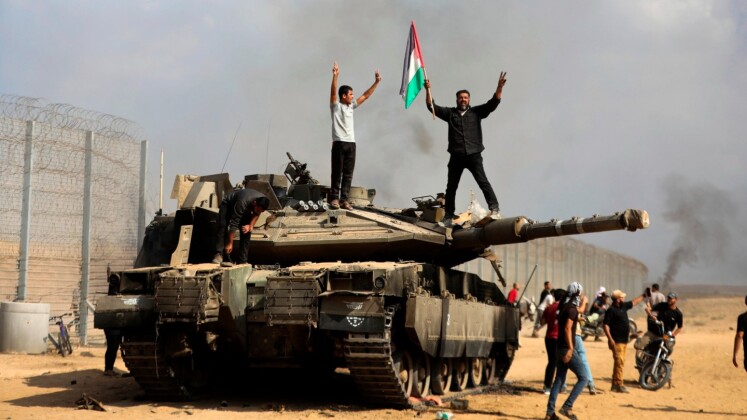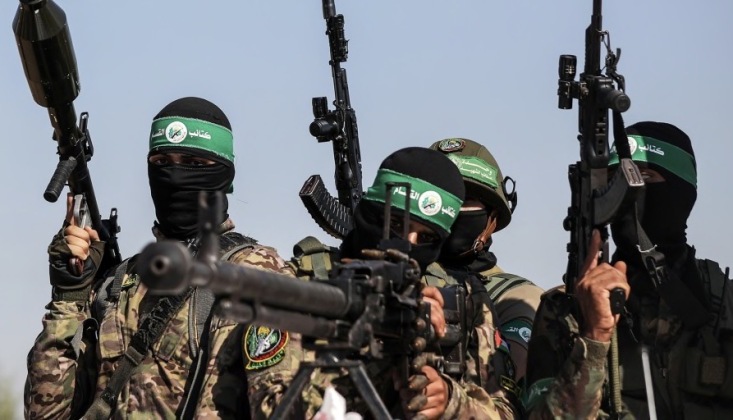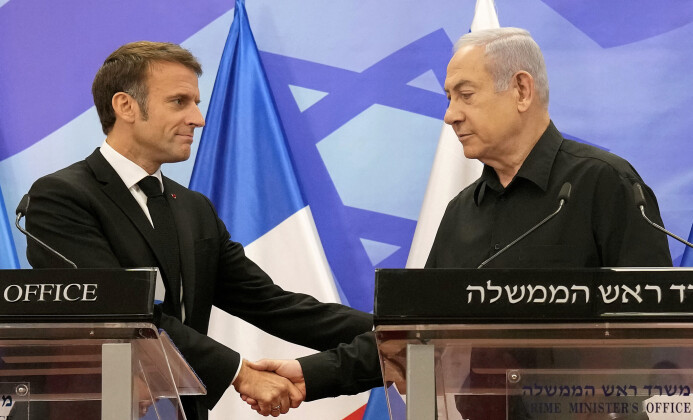News
Western Militaries’ Growing Role in Israel’s Gaza Campaign: U.S. Marine Generals and Special Ops. on the Ground as France Advocates Coalition Involvement
As the Israeli Defence Forces increasingly been reported to be facing difficulties achieving the objective of destroying the Palestinian militia Hamas, the United States has responded by providing growing levels of personnel and material support. While significantly escalating the American military presence in the region, the Pentagon has dispatched Marine Corps Lieutenant General James Glynn, who previously played a leading role in planning special operations against the Islamic State and served in Fallujah, Iraq, to advise Israeli forces. Formerly serving as the commanding general of Marine Special Operations Command, National Security Council spokesman John Kirby stating that Glynn and other officers advising Israeli forces “have experience that is appropriate to the sorts of operations that Israel is conducting.” America’s role in the conflict, however, has increasingly gone beyond that of advising raising the possibility that its forces could come to shoulder a much greater burden in the war effort.

On October 15 Defence Secretary Lloyd Austin ordered that 2,000 personnel gear up for a potential “medical and logistical support” mission in Israel. A little over a week later unconfirmed reports began to emerge that U.S. Army Delta Force special forces specialised in counterinsurgency had been deployed alongside Israeli forces for incursions into Gaza, where Hamas has had decades to prepare defences including a vast underground tunnel network. Although it has been confirmed that Delta Force is advising Israeli forces, their involvement in combat operations remains unconfirmed. The fact that many hostages taken by Hamas forces are American citizens, however, has made such involvement far from implausible. Retired U.S. Army Colonel Douglas MacGregor, speaking to talk show host Tucker Carlson, reported on October 25 regarding the involvement of American special forces in open hostiles: “In the last 24 hours or so, some of our Special Ops forces and Israeli Special Ops forces went into Gaza to reconnoiter, to plan for where they might want to go to free hostages and make an impact, and they were shot to pieces and took heavy losses, as I understand it.” The performance of Hamas units, both in their initial offensives against Israeli positions and now defensively, is expected to add urgency to ongoing American investigations into the kind of training they may have received from Iran or Hezbollah – the latter which has seen its special forces receive advanced North Korean training which was demonstrated against Israeli forces during a brief war in 2006.

While the U.S. increases its involvement in the theatre significantly, its NATO ally France has proposed that the predominantly Western coalition force that was formed to fight the Islamic State terror group in 2014 be given the new mission of fighting Hamas to support Israel. On October 24 meeting with Israeli Prime Minister Benjamin Netanyahu French President Emanuel Macron stated that the Palestinian political party and militia had to be tacked “without mercy,” with Netanyahu at the time stressing that “this battle is not merely our own … it’s everybody’s battle.” Other than Turkey and the United States, France maintains the largest military presence in the Middle East among NATO members, and could see its forces deployed to provide support or even directly participate in combat operations should the war escalate. Influence in the region has become particularly important for Paris since the undermining of its sphere of influence across West Africa with the popular overthrow of multiple French-aligned governments in the region.

Alongside the United States and France, Turkey has played an important role in diverting attentions of Hamas’ allies Syria and Hezbollah away from Israel, with jihadist militias supported by Ankara and benefitting from Turkish special forces within their ranks staging growing provocations against Syrian targets and having the potential to launch large offensives into Syria should the war escalate. While the extent of U.S. and other Western involvement in Israel’s Gaza campaign remains uncertain, America is expected to intervene should the conflict escalate to involve Hezbollah, Syria or Iran. Washington has accordingly massively escalated its military presence in the region including deployment of two nuclear powered supercarriers and their strike groups, as well as F-15E fighters, A-10 attack jets, and a large Marine contingent with its own aircraft carrier among a range of other assets. Strengthening of the air defences both in Israel and around other American facilities in the region has also been a priority with deployments of Patriot and THAAD systems, provision of new ammunition for Israeli air defence systems, and plans to transfer the U.S. Army’s sole two Iron Dome short ranged defence systems to Israel as aid.












